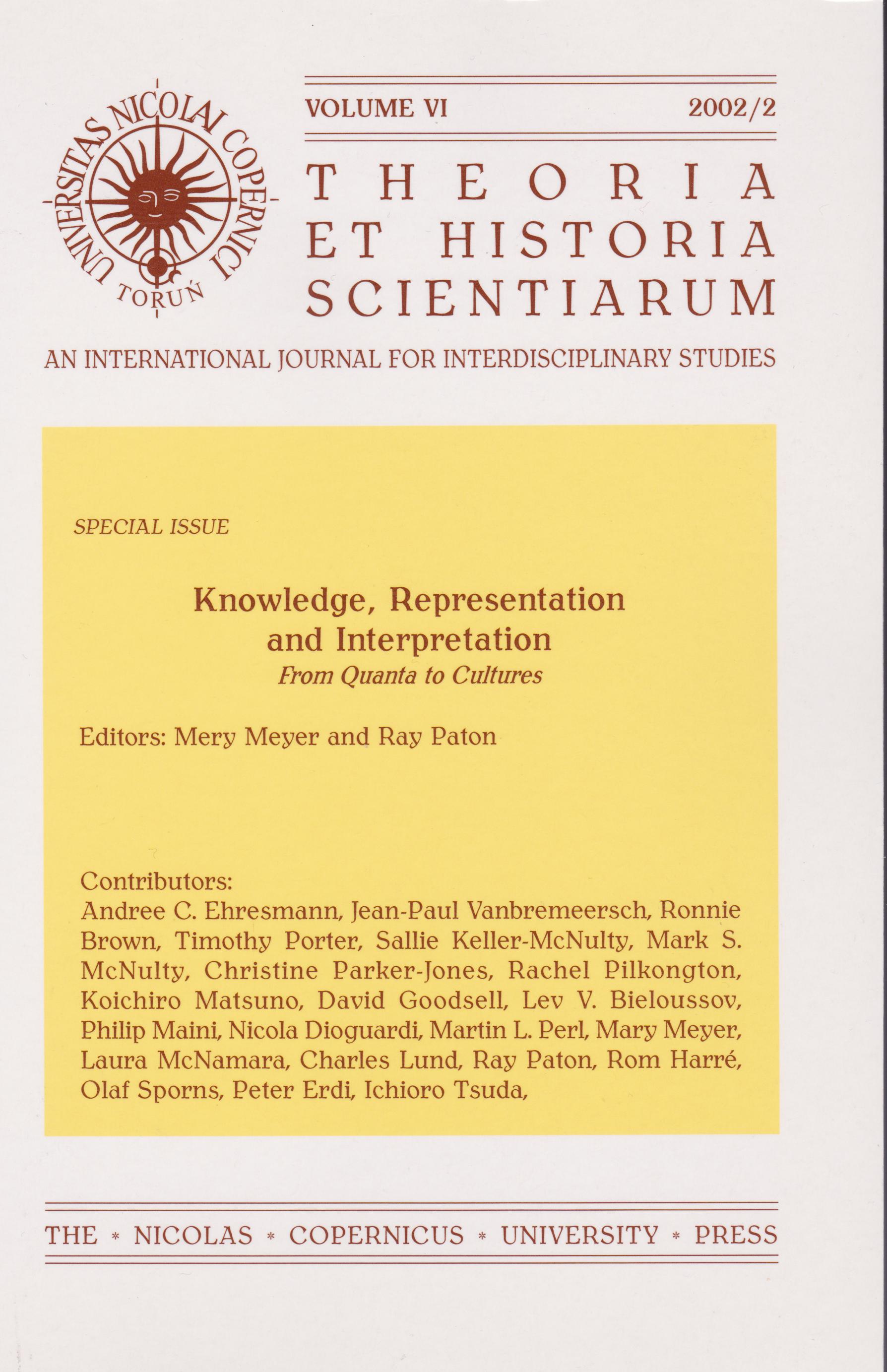The Representation of Form, Field and Transformation in Psychotherapy
DOI:
https://doi.org/10.12775/ths.2002.032Keywords
psychotheraphy, form, field, transformation, spatial model, hermeutic reflectionAbstract
The material reported in this paper has grown out of an ongoing dialogue between a psychiatrist and a computer scientist. The former is concerned with the development of meaningful communication between an expert practitioner in psychotherapy and trainees especially within the context of supervision, and the latter with the characterisation of complex domains of knowledge in relation to the possible development of computer-based support systems. The challenge of the ongoing study reported here has been to analyse some of the key concepts in the psychiatrist’s domain of expertise with the result of developing a visual metaphor for helping to integrate and clarify these concepts.References
Beck, A. T. and Freeman, A. (1990) Cognitive Therapy of Personality Disorders, Guildford Publications, New York.
Bertalanffy, L. von (1973) General System Theory. Harmondsworth: Penguin.
Bion, W. R. (1962) Learning from Experience. Heineman, London.
Bolton, D. and Hill, J. (1996) Mind, Meaning and Mental Disorder: The Nature of Causal Explanation in Psychology and Psychiatry, p.p. 200-205, O.U.P. Oxford.
Borossa, J. (1997) Case histories and the Institutionalisation of Psychoanalysis in The Presentation of Case Material in Clinical Discourse, Ed. Wardl p.p. 45-63, Freud Museum Publications, London.
Cannon, W. B. (1929) Bodily Changes in Pain Hunger Fear and Rage. Appleton, New York.
Dalai, F. (1998) Taking the Group Seriously: Towards a Post-Foulkesian Group Analytic Theory. Jessica Kingsley, London.
Foulkes, S. H. (1973) The Group as Matrix of the Individual's Mental Life. In selected papers (1990) p.p. 209-221, Kamac, London.
Harre, R. (1986), Varieties of Realism: a Rationale for the Natural Sciences, Blackwell, Oxford.
Heiman, P. (1950), “On Counter-transference”, British Journal of Medical Psychology, 33, 9-15.
Jones, E. (1962) The Life and Work of Sigmund Freud. Edited and abridged by Trilling, L. and Marcus, S., Penguin Books, London The Representation of Form, Field and Transformation in Psychotherapy 269
Kesey, K. (1973) One Flew over the Cuckoo’s Nest. Picador. London.
Lund, C. A. & Paton, R.C. (1999), “A Visual Metaphor for Psychoanalytic Training and Supervision”, in Paton, R.C. & Neilson, I. (editors), Visual Representations and Interpretations, London: Springer.
Main, T. (1989) Some Medical Defences Against Involvement with Patients. In The Ailment and Other Psychoanalytic Essays. Edited by Jones, T. Free Association Books, London.
Meyer, M. A. & Paton, R.C. (this volume)
Minuchin, S. (1974) Families and Family Therapy. Tavistock Publications, London.
Ogden, T. (1982) Projective Identification and Psychotherapeutic Technique. Jason Aronson, New York.
Paton, R. C. (2000), “Systemic Metaphors and Integrative Biology”, Theoria et Historia Scientiarum, in press.
Rosenhan, D. L. (1973) “On Being Sane in Insane Places”, Science, 179, 250-258.
Sandler, J., Dare, C. and Holder, A. (1979) The Patient and The Analyst: The Basis of the Psychoanalytic Process. Kamac Books, London
Thompson, D’Arcy W. (1942). On Growth and Form A New Edition. University Press: Cambridge University Press. Also the 1992 Canto edition with Cambridge University Press.
Wolf, A. and Schwartz, E. K. (1962) Psychoanalysis in Groups. Grune and Stratton, New York
Young, J. Z. (1978). Programs of the Brain. Oxford: OUP.
Downloads
Published
How to Cite
Issue
Section
Stats
Number of views and downloads: 217
Number of citations: 0



